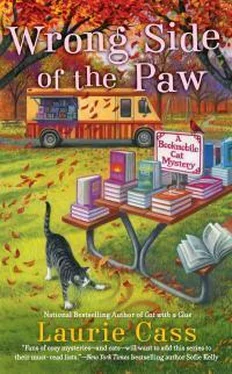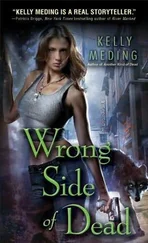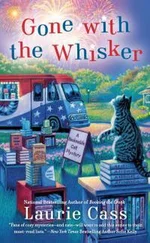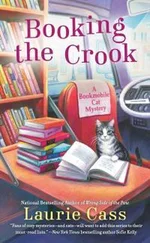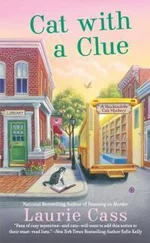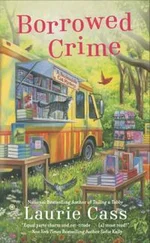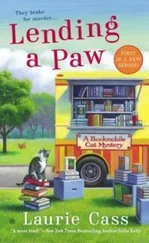Back on the front porch, he asked, “Can I help you?”
“Sorry to barge in when you’re so obviously busy,” I said, “but I was hoping to talk to Howard Upton if he has a couple of minutes.”
“That’s me.” He took off a work glove, held out his hand, and we shook.
I was a little surprised by his age; I’d expected someone with such a stellar reputation to be in his fifties, but this guy couldn’t be that much older than I was. I introduced myself, and before I could say anything else, he gave me a solid slap on the shoulder.
“You’re Frances Pixley’s niece,” he said, grinning. “It’s thanks to her that I got into construction. Before she started at the community college, she taught high school wood shop, remember? In two years I went from a kid who’d never touched a power tool in his life to a kid who won first place in the state woodworking competition with an inlaid dining table. She’s a great teacher and it’s a crying shame the high school dropped their industrial arts classes.”
“She says the same thing.” And she did, often. It was understandable why Chilson and so many other schools had done so—they were expensive to run and difficult to staff—but it was still a shame because the benefits were so obvious. I smiled at Howard Upton. “I’ll tell her you said hello.”
“Please do.” He tipped his head at the house. “What do you think? Are we going to finish by Thanksgiving?”
It seemed unlikely, but what did I know? “You have lots of activity going on in there,” I said. “It’s like an ant hill that’s been stepped on.”
Upton laughed. “Sounds about right. Frantic, but with a method.”
I’d been thinking more along the purely frantic lines, but I let him keep his version of the simile.
“So how can I help you?” he asked.
Instead of the thinking-about-building-a-house story, I said, “I was hoping to talk to you about Ron Driskell.”
He studied me. “Why?”
“Sorry, it’s just . . .” I sighed. “Dale’s daughter, Leese, is a friend of mine. She just started a new business but she’s losing clients left and right because of her dad’s murder. I want to help, that’s all.”
A loud crash echoed inside the house, followed by shouts and laughter. Upton rolled his eyes. “Leave the room for one minute and what happens?” But he was smiling as he spoke and made no move to investigate. “Okay,” he said. “I understand you want to help. What I don’t see is why you’re talking to me.”
“Sorry.” And I was, because I’d asked the wrong question. Nicely done, Minnie. “What I should have asked was, what do you think about Ron Driskell?”
“Our beloved building official?” He smiled, but this time it had a distinct sardonic cast.
I began to scent a clue. “Mr. Driskell has a reputation?”
Upton shrugged. “He won’t let builders cut any corners. He’s black and white, no gray allowed.”
“I don’t see the problem. Isn’t that what building inspectors are supposed to do?”
Another shrug. “Not for me, but for some guys, yeah.”
“Because you don’t cut corners?”
Upton grinned. “Let’s go with that.”
I suspected that I’d simply spoken the truth and that he hadn’t wanted to do what might have been interpreted as bragging. My mental list of builders for my fantasy house went from a penciled listing with him at the top to a list of one with his name in permanent marker.
“Does Mr. Driskell have a temper?” I asked.
“Sure, if you poke at him with a stick.”
“A stick?”
“Metaphorically speaking,” Upton said. “Take last summer, for instance. There was this builder who needed a foundation inspection. Driskell’s office said it would be three days before an inspector could get out there. The builder decided he couldn’t wait and started laying the floor joists anyway.”
“That’s bad?”
“Very. When Driskell finally showed up, he went ballistic. Kicked at a pile of blocks and broke a toe.” I expected Upton to laugh, but he shook his head. “That kind of thing doesn’t do the construction trade any good. Sure, the builder shouldn’t have started without the foundation permit, but Driskell shouldn’t have lost his temper.”
Hmm. “Was that an isolated incident, or are there other stories like that?”
Upton launched into a complicated tale about low-flow toilets being replaced by toilets from Canada. Though I lost the story’s thread less than halfway through, I understood the ending of that and the three other incidents Upton told me about before heading back to work.
The ending, the conclusion being: Ron Driskell had a horrific temper that had, more than once, ended in an outburst of violence.
• • •
Thoughtfully, I drove back to Chilson. The sun was just starting to slide down below the trees when I parked in the boardinghouse driveway and went in through the front door.
“There you are,” Aunt Frances said. “Your cat has been worried sick about you.”
Eddie was, at that particular moment, stretched out long on my aunt’s legs, which were up on the couch and covered with a new fleece blanket that I suspected she’d purchased because she thought Eddie would like it.
My furry friend, who didn’t look worried about anything, picked his chin a quarter of an inch off the blanket and looked in my general direction. “Mrr,” he said, and let his chin drop back down.
“He had a hard day on the bookmobile.” I leaned over the couch and patted his head. “All that sleeping tires him out something fierce.” I glanced at what Aunt Frances was reading. “Is that one of the scrapbooks?”
She nodded. “An early one.”
On a rainy afternoon the first year my aunt had opened the boardinghouse, she’d unearthed a blank scrapbook in the attic, brought it downstairs, plopped it in front of two bored boarders, and challenged them to fill it up before the end of the summer.
They’d taken up the gauntlet with zest and from thence forth, every inclement boardinghouse day had become a group scrapbook activity day. Pages were crowded with handwritten notes, stick-figure sketches, beautifully drawn sketches, and maps to favorite places. Taped and glued in were cardboard coasters and napkins, ticket stubs, newspaper articles, pressed flowers, photos, and even small plastic baggies holding grains of sand from favorite beaches.
Since then, there had been a boardinghouse scrapbook for every summer—and for eventful summers, sometimes more than one.
I sat on the other couch. “Do I detect a wistful expression?”
My aunt smiled and turned a page. “It’s that time of year. The guests have been gone long enough for me to recover physically, but not long enough that I’ve learned how to do without them.”
“Physically?” I frowned. “I didn’t know you needed a recovery time.”
Aunt Frances laughed. “Dear niece. You do realize that I’m almost thirty years older than you are. Cooking and cleaning for six other people would take a lot out of anyone, let alone someone in my age bracket.”
“Hire someone to help,” I said.
She looked up. “As I recall, you suggested that last summer. And I still feel the same way as I did then, that any outside help would change the atmosphere, make it impersonal.”
“But—”
She shook her head. “If it means we have to end the boardinghouse, then so be it. I am not going to budge on this one.”
There was a short silence. “You shouldn’t have to work so hard,” I said softly.
“Don’t you see?” she asked, just as softly. “I like to. I enjoy this and I always have. At least until now.”
“Until Otto.”
“Yes.” She shut the scrapbook. “But Otto and I would never have met if it hadn’t been for the boardinghouse. And what about all the other couples who have met here? It would be a shame . . .”
Читать дальше
